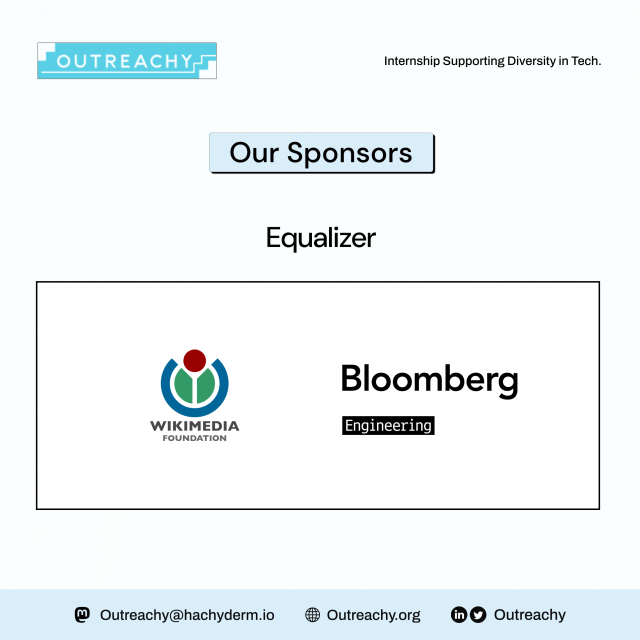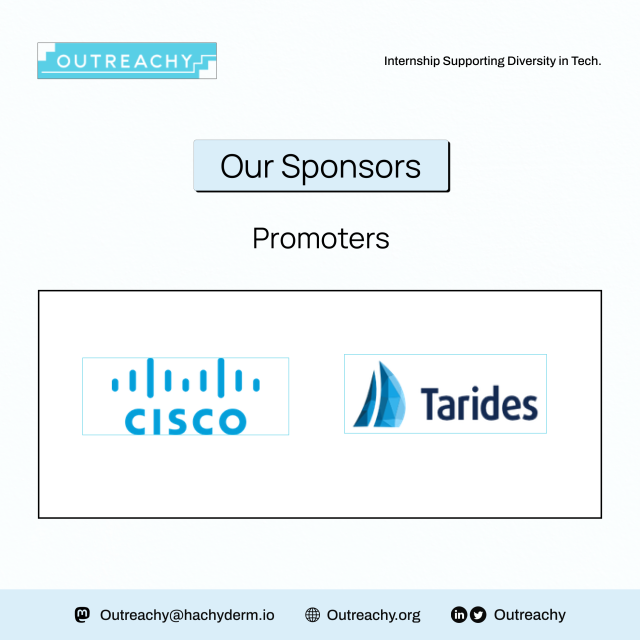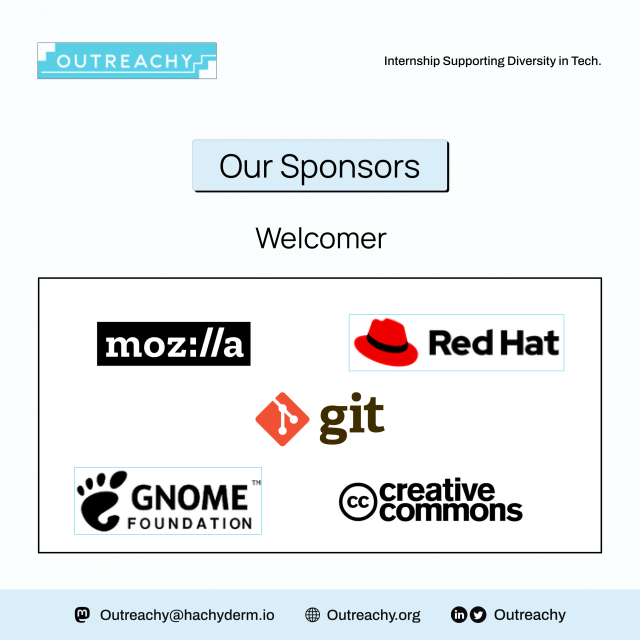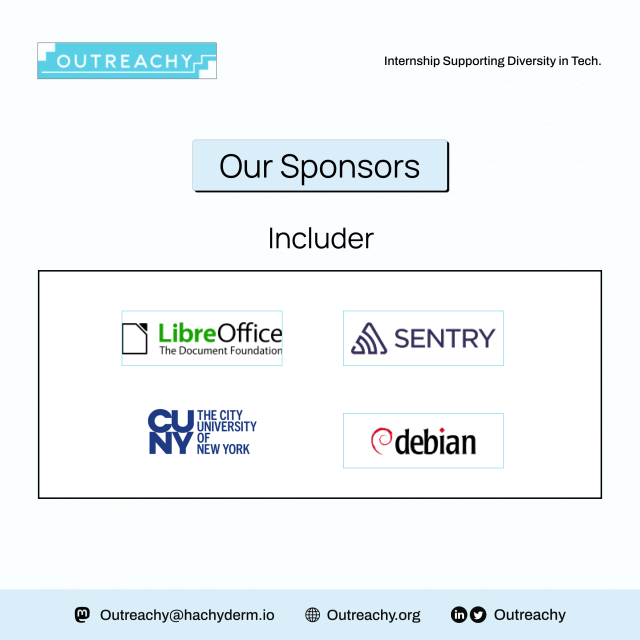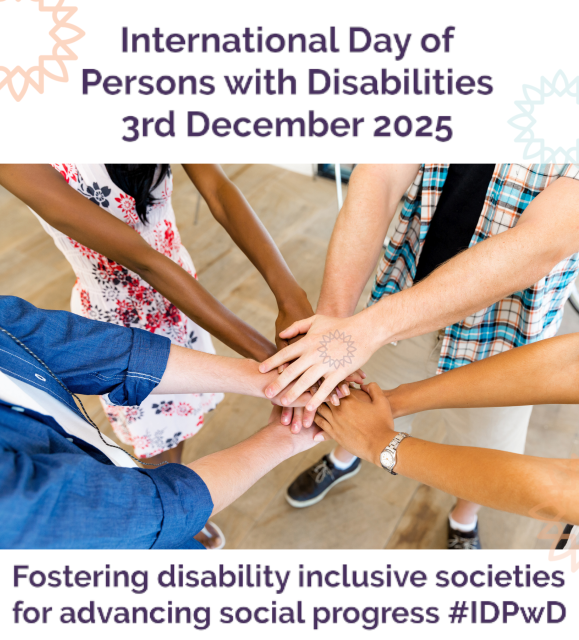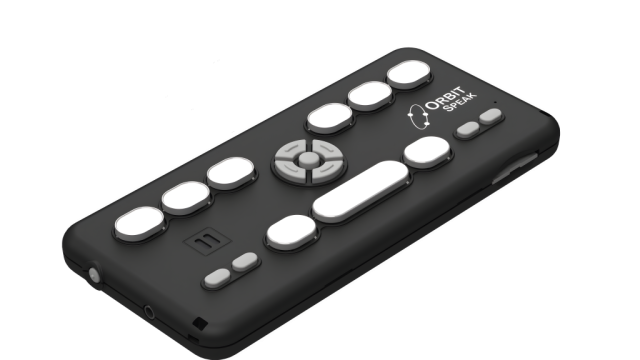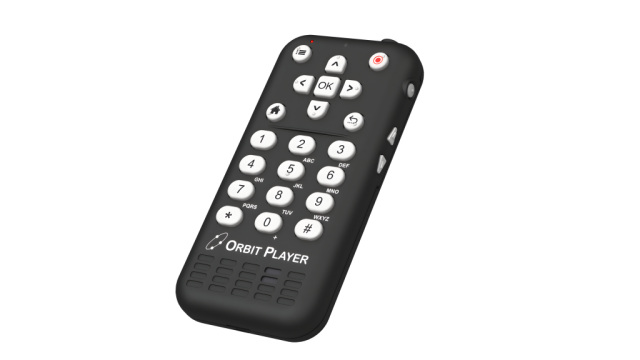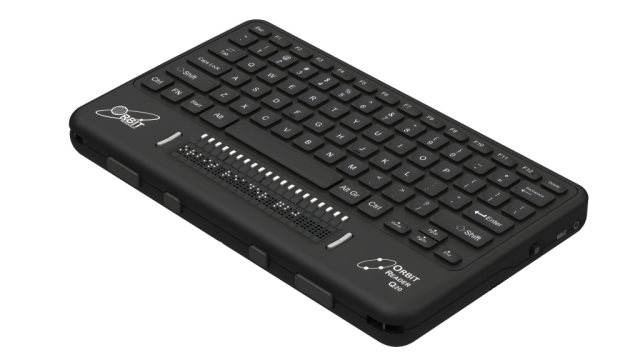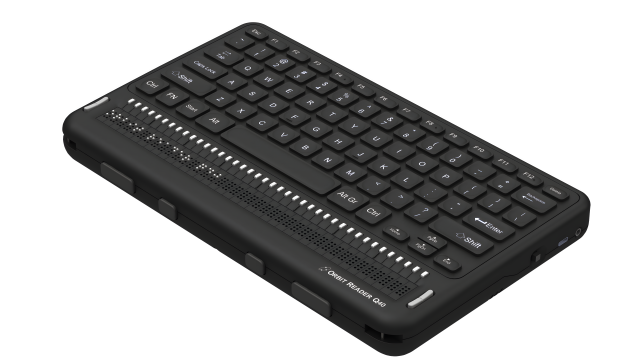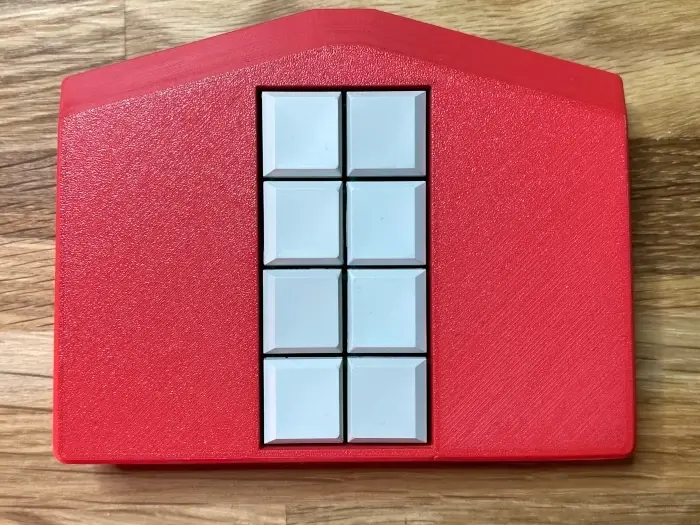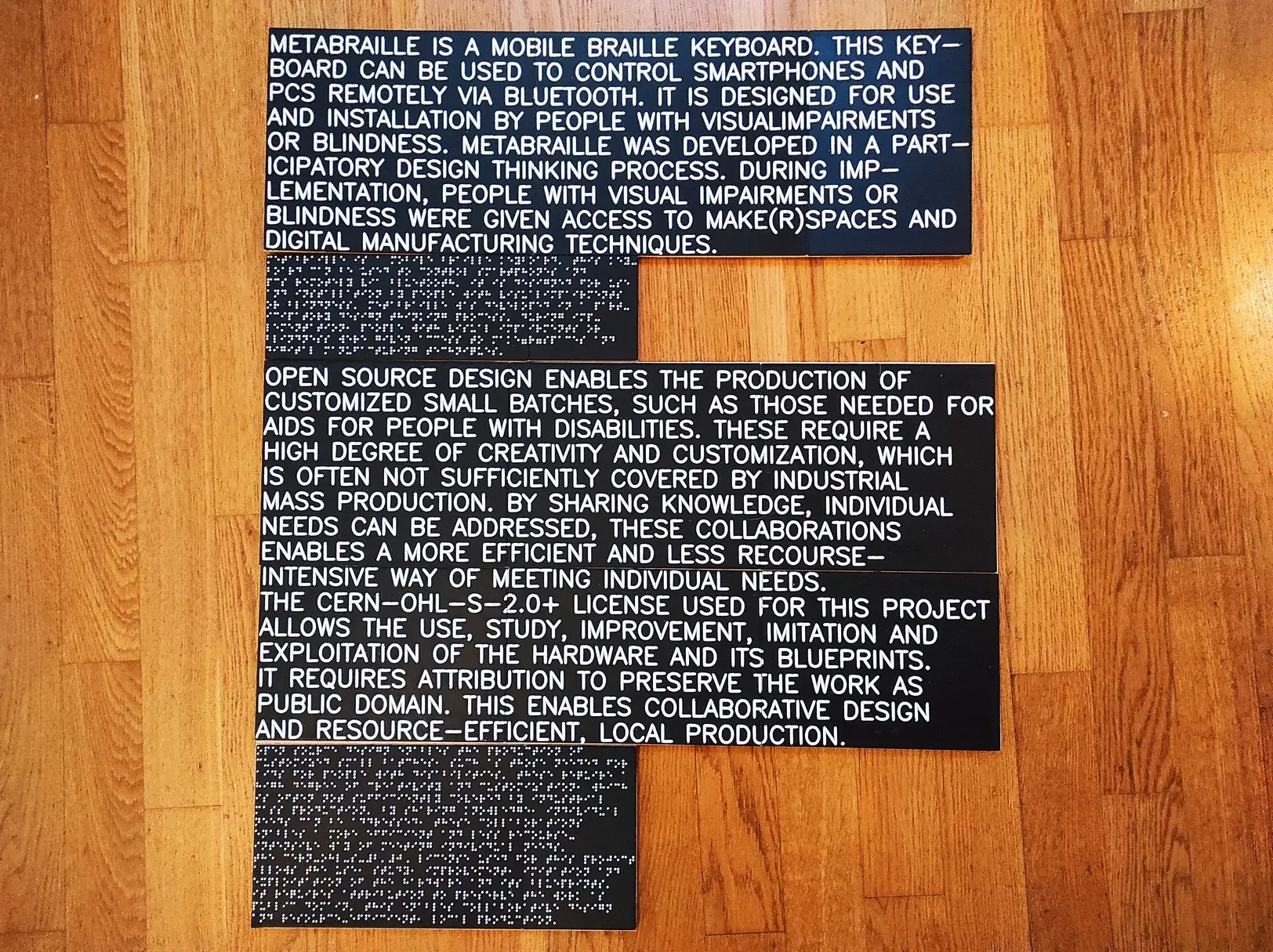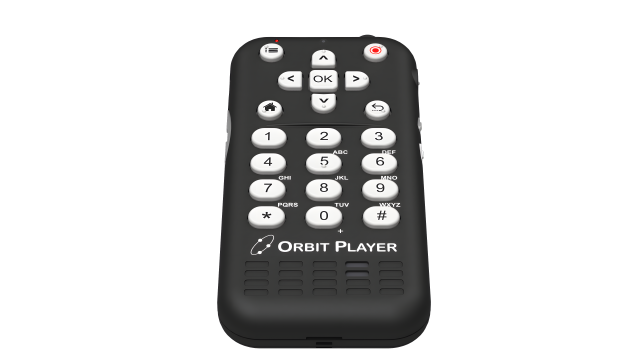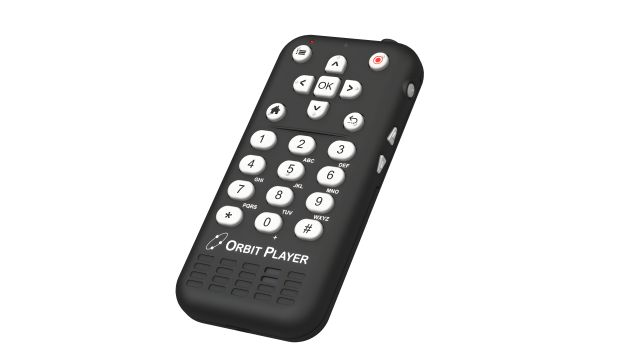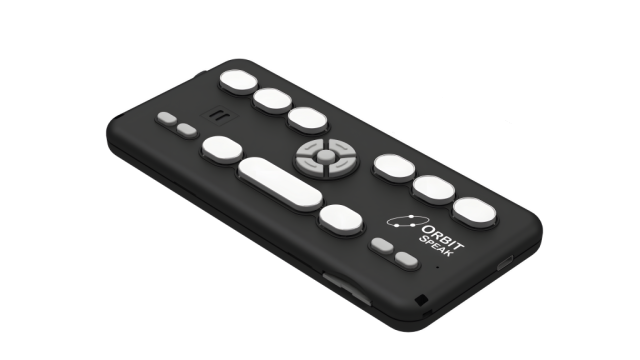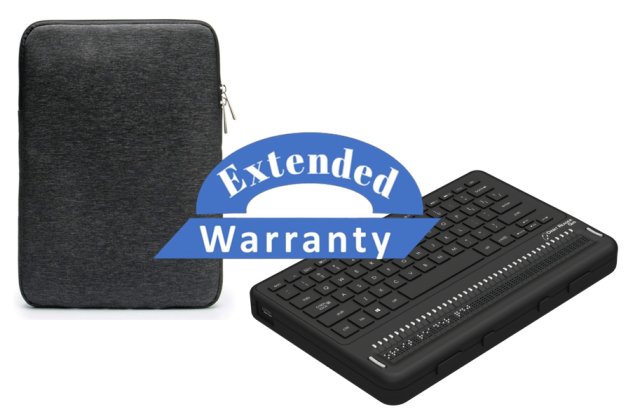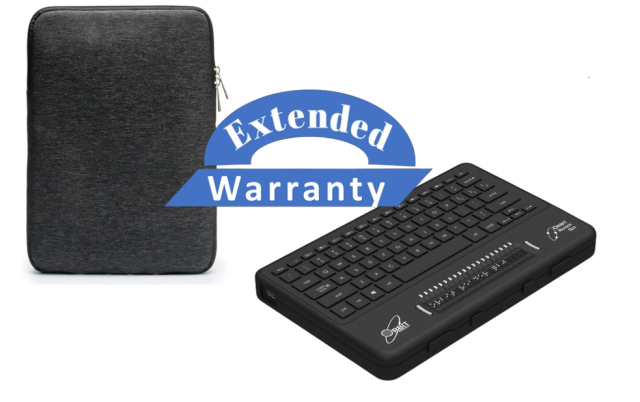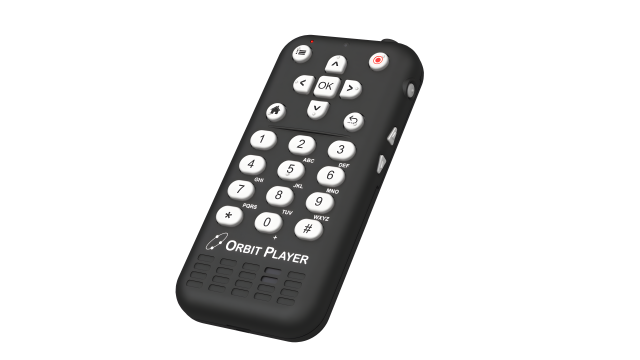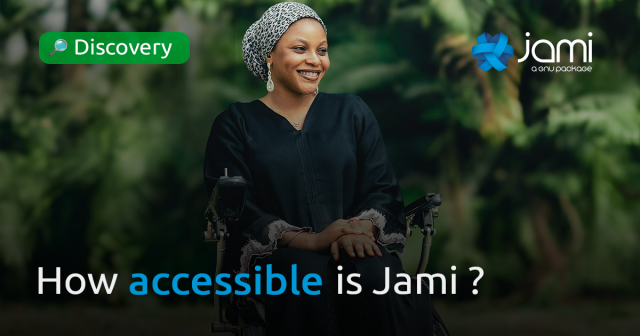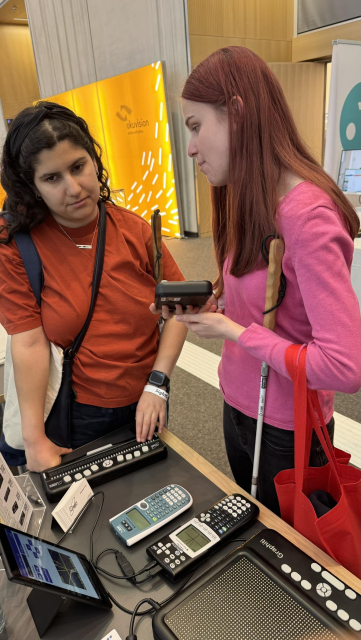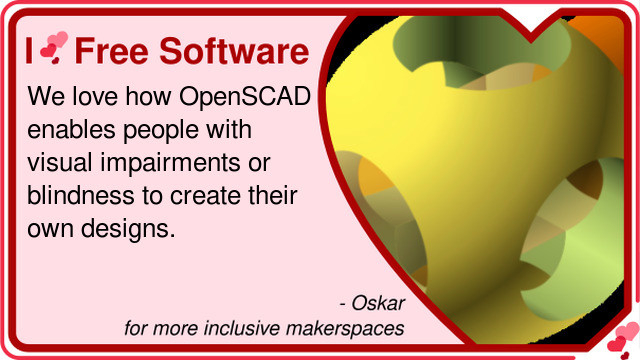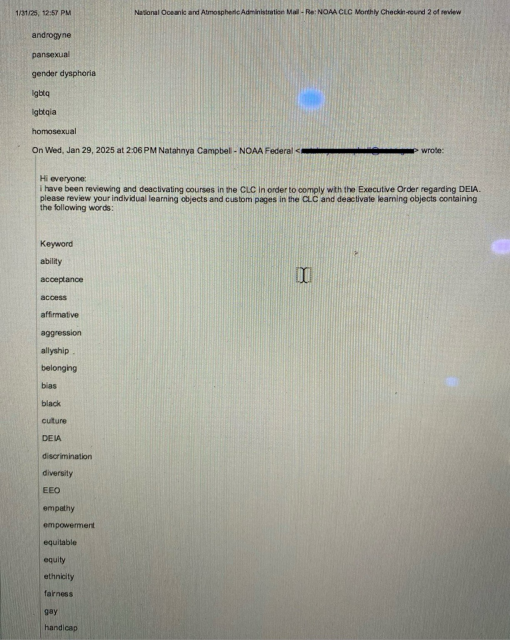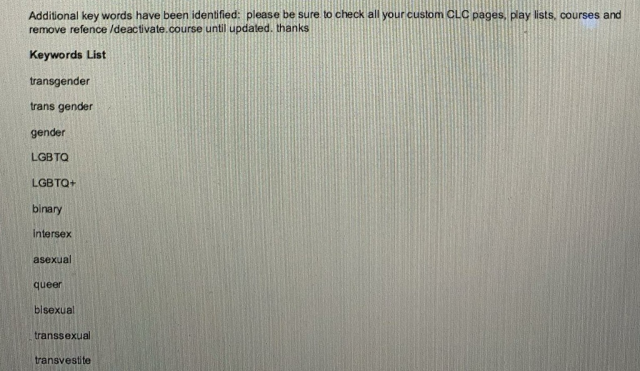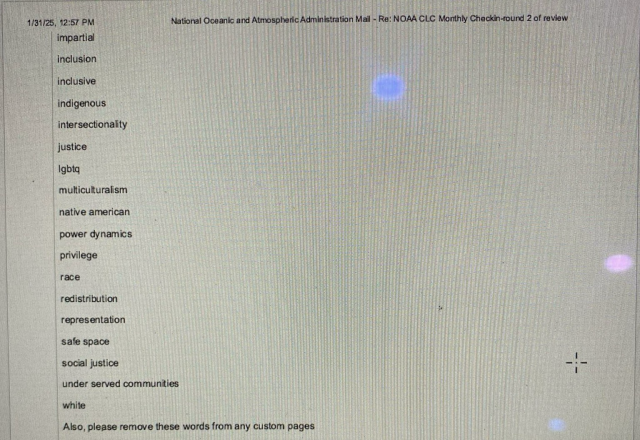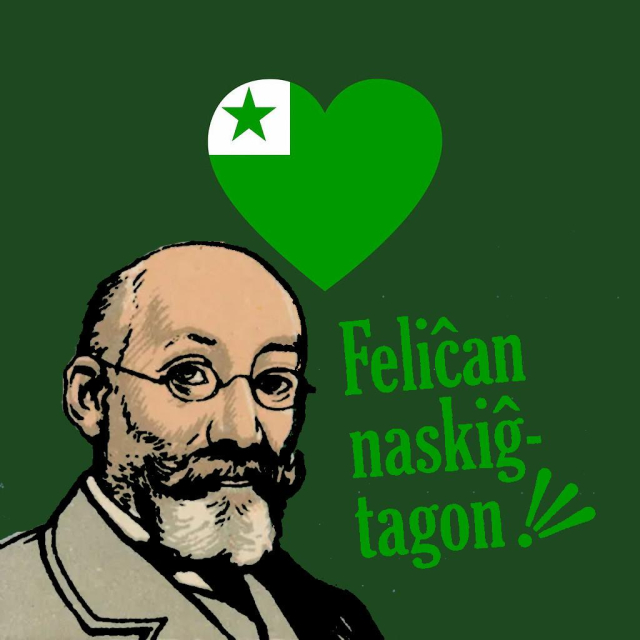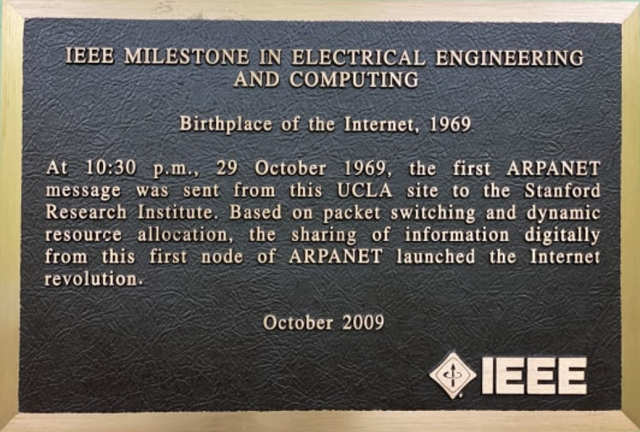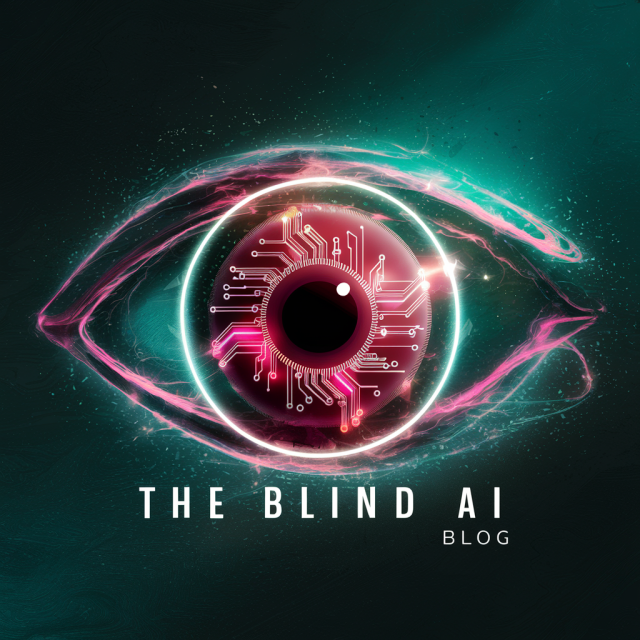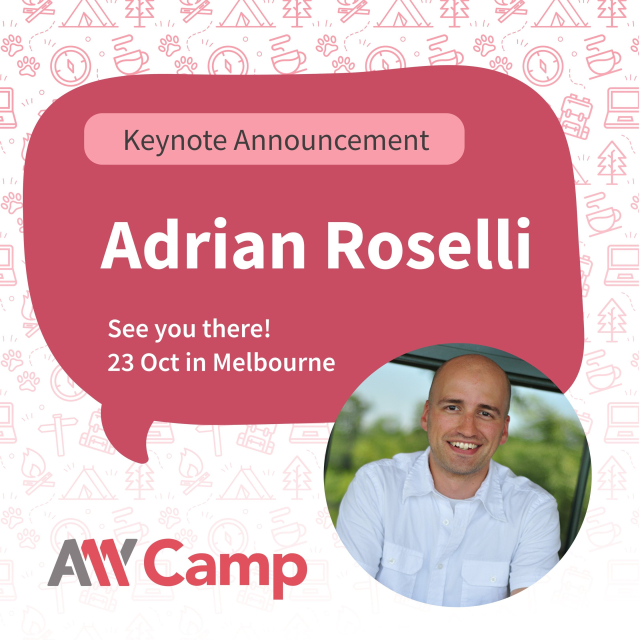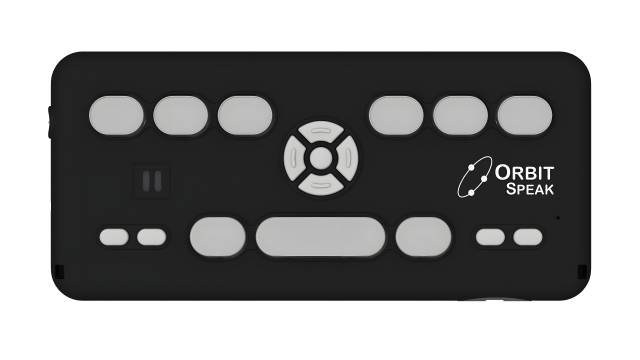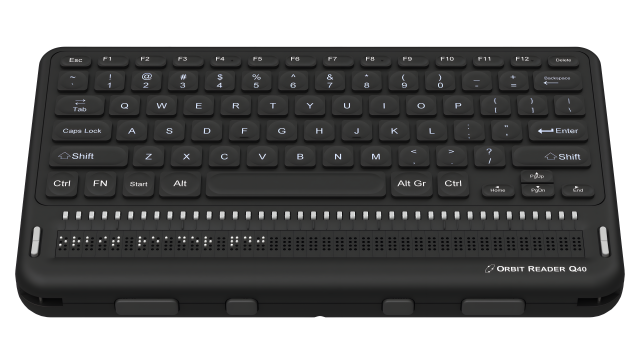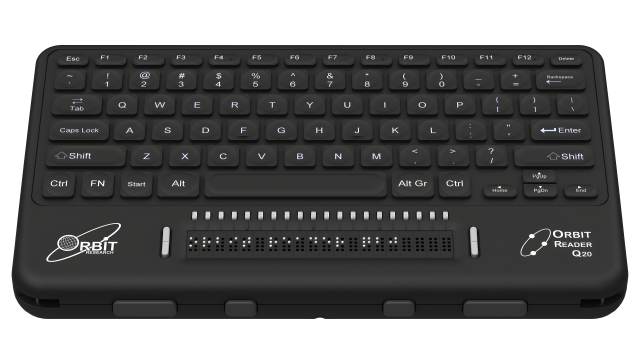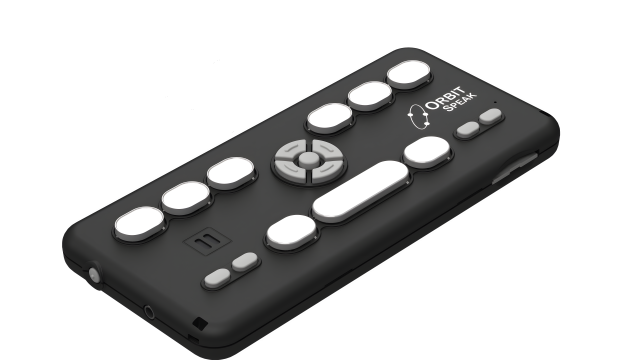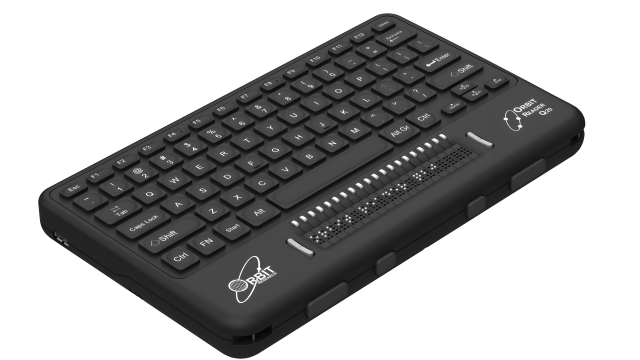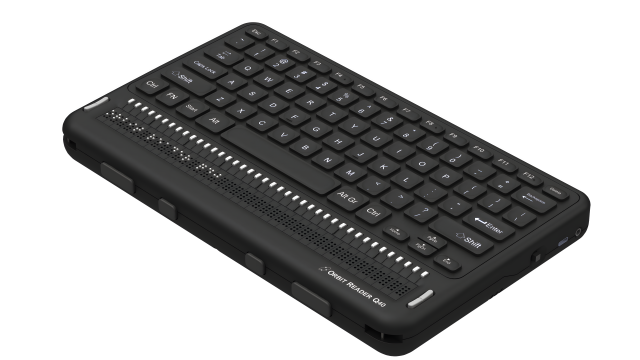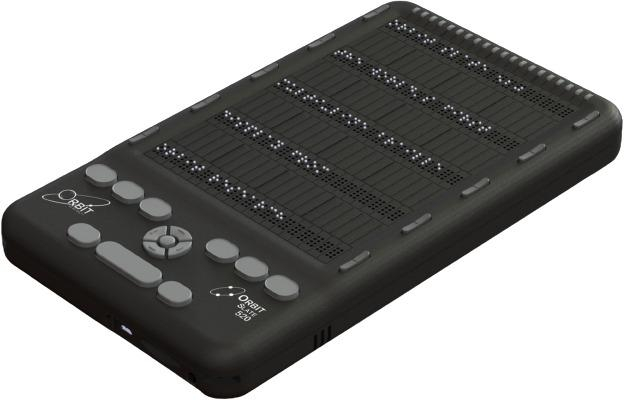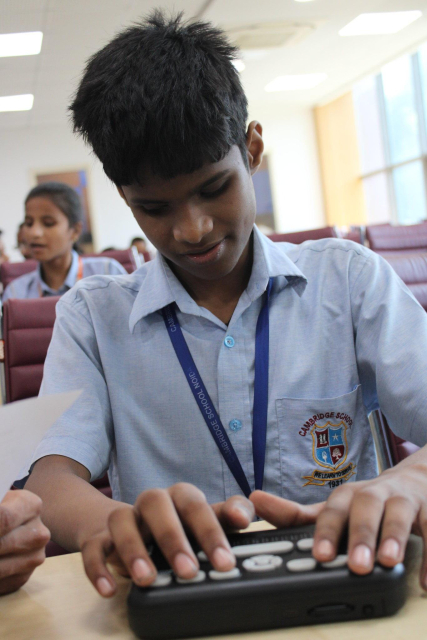Search
Items tagged with: inclusion
Just tell me it’s a raccoon stealing a bagel. 🦝🥯
The Golden Rule: Describe the scene, not the vibe. We can figure out the meaning all by ourselves, thanks.
#Accessibility #Blind #AltText #WritingTips #SocialMedia #Inclusion
Sustaining inclusive programs takes commitment, especially in challenging funding seasons.
As we welcome the December 2025 @outreachy cohort, we’re grateful for the organizations whose support helps keep this work strong and moving forward:
➡️ Equalizer: @wikimediafoundation, #Bloomberg
➡️ Promoter: @tarides #Cisco
➡️ Includer: #CUNY, @debian, @getsentry
➡️ Welcomer: @creativecommons , @mozilla, @gitlab, @gnome and #RedHat
Your partnership enables paid, remote internships and meaningful participation in open source for people facing systemic barriers.
Thank you for standing with us and investing in a more inclusive ecosystem
Happy International Day of Persons with Disabilities!
This year's #IDPwD theme is: "Fostering #disability #inclusive societies for advancing social progress"
What better way than ensuring everyone has access to, and awareness of #Accessibility of technology.
* #NVDA is FREE for anyone
* Right now, get 10% off certification to show your skills (& cheap training materials to get you to that point)
un.org/en/observances/day-of-p…
#DisabilityAwareness #Inclusion #IDPwD2025 #NVDA #Accessibility
International Day of Persons with Disabilities | United Nations
The International Day of Disabled Persons aims to promote the rights and well-being of persons with disabilities in all spheres of society and development.United Nations
#A11y #BrailleForAll #inclusion #OrbitSpeak #OrbitPlayer #SightVillageLondon
Presentamos a @jmdaweb, ingeniero de software y consultor de accesibilidad en Plexus.
Es presidente de la Comunidad Hispanohablante de NVDA,, y está certificado como Web Accessibility Specialist (WAS) por la IAAP.
🛠️ En esta primera edición de la a11yConf ofrecerá el taller:
“NVDA para desarrolladores: escucha lo que tu interfaz esconde”.
📍 Girona, 29 de noviembre
🌐 a11yconf.com/es/agenda#JoseMan…
#A11Y, #AccesibilidadDigital, #ScreenReader, #Lectordepantalla, #Workshop, #Taller, #Inclusión, #DesarrolloWeb, #Girona
a11yConf - Conferència d'Accessibilitat Web
a11yConf - Jornada d'accessibilitat digital a Gironaa11yconf.com
Accessibility isn’t complicated—it’s ignored. We’ve failed to teach, enforce, and value inclusion in tech.
Developers, educators, governments, and companies all have a role to play.
Read and share if you believe accessibility should be for everyone:
taylorarndt.substack.com/p/why…
#Accessibility #Inclusion #A11y #DigitalAccessibility #DisabilityRights #TechForGood #AI #InclusiveDesign
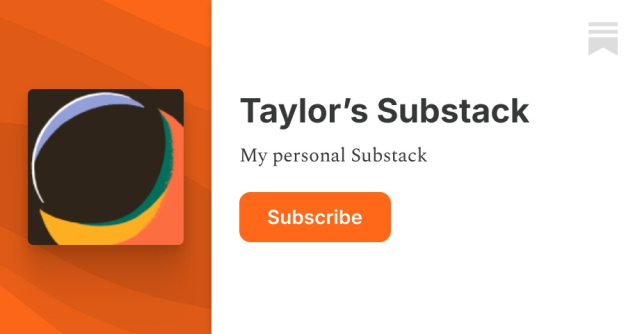
Why Can’t Everything Be Accessible?
Every day, millions of people are left behind by technology that was never built with them in mind.Taylor Arndt (Taylor’s Substack)
#AI #TechEthics #FaceRecognition #Inclusion #Accessibility
wired.com/story/when-face-reco…
ALT TEXT: person holding a cellphone
There’s an accessibility bug on Mastodon: you cannot add custom alt text to your profile or header image. This means people using screen readers can’t know what these images show, so important info is missing for visually impaired users. ♿
Please help by upvoting and commenting on the issue so it gets more attention from developers 👇
github.com/mastodon/mastodon/i…
Let’s make Mastodon more inclusive for everyone! 🤗
CC @Mastodon
#Accessibility #Mastodon #Inclusion #OpenSource
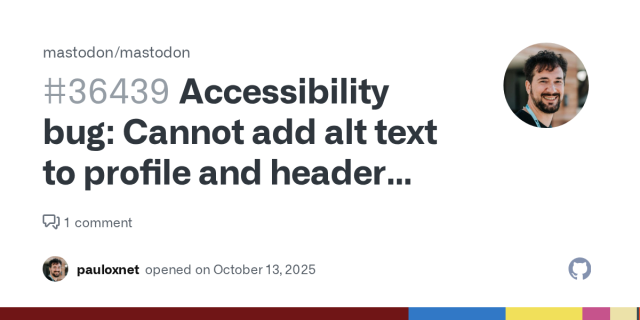
Accessibility bug: Cannot add alt text to profile and header images
Pitch In the public profile edit section of the Mastodon web interface, it is not possible to set alternative text (alt text) for the profile picture and header image. Right now, both images have a...pauloxnet (GitHub)
It’s a new iPhone app that provides on-device answers to assistive technology questions—private, accessible, and built with Apple Intelligence on iOS 26.
Read the full announcement: taylorarndt.substack.com/p/per…
#Accessibility #AssistiveTechnology #BlindTech #AppleIntelligence #iOS26 #ATCommunity #Inclusion
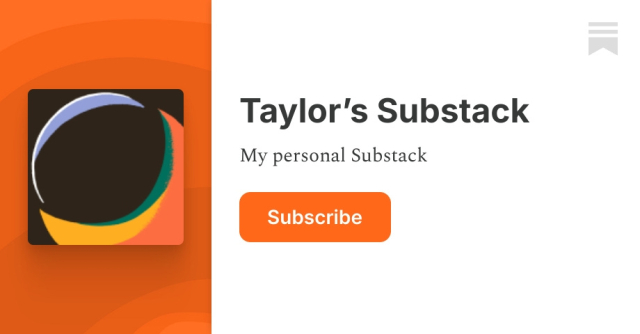
Perspective AT Beta Now Available
These past two days have been incredibly hard for me.Taylor Arndt (Taylor’s Substack)
Order now first batch quantity are limited.
You can place your order online here:
orbitresearch.com/product/orbi…
Or call us at 888-606-7248 to order by phone.
#A11y #BrailleForAll #Inclusion #OrbitReaderQ20 #OrbitReaderQ40 #OrbitSpeak #OrbitSpeakPlus #OrbitPlayer
Orbit Player - Global Version
The Orbit Media Player is a versatile, user-friendly device designed to enhance accessibility for blind and visually impaired individuals. It features a compact, lightweight design with tactile buttons for easy navigation.Orbit Research
The new series presents inclusive innovations in more detail. youtu.be/GA7kCZowkks #make #blind #inclusion
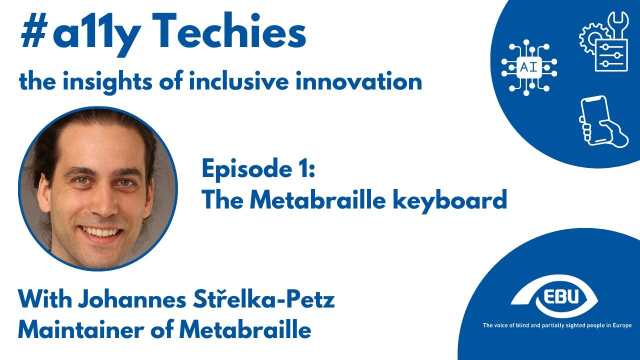
Episode 1: the Metabraille keyboard, with Johannes Střelka-Petz.
EBU is delighted to launch its #a11yTechies series with an interesting chat with Johannes Střelka-Petz, from Vienna. Through close collaboration with people ...YouTube
Special Offers
Special offers for the ACB & NFB 2025 convention (Valid from Jul 6th to July 13, 2025). Available to customers in the US while supplies last! Bundles with Turtleback leather luxury carrying casesOrbit Research
🌍 Accessibility matters for everyone.
Whether permanent or temporary, disability can affect us all at some point in our lives. That’s why accessibility isn’t a bonus feature: it’s a necessity.
At Jami, we’re committed to making private communication truly inclusive. From screen reader support to keyboard navigation, here’s where we stand and where we’re going: jami.net/how-accessible-is-jam…
#Accessibility #Inclusion #TechForGood #OpenSource #Jami #PrivacyMatters #AccessibilityMatters
How accessible is Jami ?
We can all be faced with some form of disability, whether permanent or temporary, at different times in our lives. That's why accessibility must be a constant concern at every stage of development.jami (Jami)
AI is moving fast—but can it really make everything accessible? Or are we ignoring the basics?
I wrote about this on Substack, including a new idea: Vibe Coding—building software with empathy, not just code.
Read & join the convo:
taylorarndt.substack.com/p/hap…
#GAAD #Accessibility #AI #VibeCoding #Inclusion
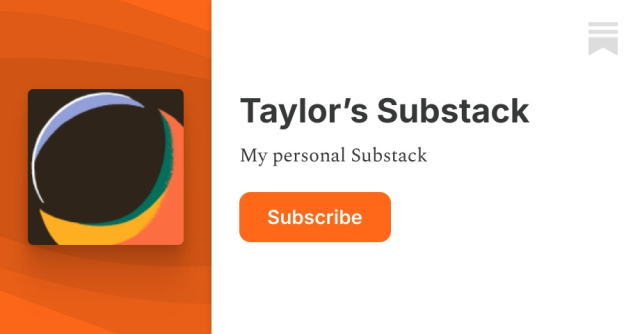
Happy GAAD: Accessibility, AI, and the Future We’re Shaping
You may not have heard of GAAD before.Taylor Arndt (Taylor’s Substack)
As a blind tech user, I knew the R1 wouldn’t be accessible.
But I bought it anyway. Why?
Because if we aren’t testing and speaking up, accessibility won’t improve. Inclusion starts with showing up.
In my latest blog post, I explain why blind voices are essential in AI—and what I hope comes from this.
📖 Read:
open.substack.com/pub/taylorar…
#RabbitR1 #Accessibility #BlindTech #AI #Inclusion #FediTech #DisabilityJustice
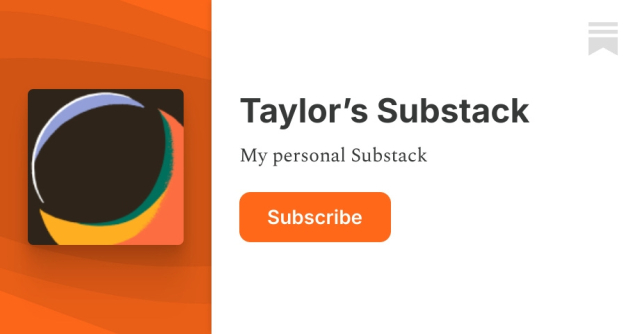
Why I Bought the Rabbit R1 (Even Though It's Not Accessible)?
When the Rabbit R1 was first announced, it generated a lot of buzz—this tiny, stylish device promised to reinvent personal computing with the help of artificial intelligence.Taylor Arndt (Taylor’s Substack)
The 2025 edition of Inclusive Design 24 (#id24) will take place on the 25 September 2025.
Got an idea for a talk? Our call for presentations is still open until the end of the month (31 May 2025).
#a11y #accessibility #inclusion #inclusiveDesign

Inclusive Design 24 (#id24)
A free 24-hour online community event on accessibility and inclusionInclusive Design 24 (#id24)

Inclusive Design 24 (#id24)
A free 24-hour online community event on accessibility and inclusionInclusive Design 24 (#id24)

Top Tech Tidbits for Thursday, February 27, 2025 - Volume 1004
The Top Tech Tidbits newsletter. The world's #1 online resource for current news and trends in access technology.Top Tech Tidbits - A Mind Vault Solutions, Ltd. Publication
Email leaked to Ken Klippenstein telling NOAA employees that their course material can’t contain ANY of the following words in order to remain complaint with Trump’s executive order on DEI.
The party than ran on freedom and speech and avoiding censorship now actively censoring people.
Every word breaks my heart… but I want to pause on the inclusion of “empathy”.
The fact that they can’t use the word empathy is a perfect encapsulation of this whole administration.
#uspoli #noaa #trump #dei #deia #censorship#fascism #freedomofspeech #inclusion
The US Web Design System has deleted it's info on inclusive design, in response to the 2025-01-20 Executive order "Ending Radical And Wasteful Government DEI Programs And Preferencing".
github.com/uswds/uswds-site/pu…
If you know anyone who used those resources, let them know about the Inclusive Design principles:
inclusivedesignprinciples.info…
#accessibility #a11y #inclusion

Remove content related to 1/20/25 EO by thisisdano · Pull Request #3078 · uswds/uswds-site
Summary Removed report link and introduction. Removed content related to the January 20, 2025 Executive Order, "Ending Radical And Wasteful Government DEI Programs And Preferencing". This...GitHub
Executive Order (EO) 14035: Diversity, Equity, Inclusion, and Accessibility (DEIA) in the Federal Workplace
opm.gov/policy-data-oversight/…
It's sickening to see that what's left of it is a "404 page not found" on the whitehouse.gov website.
Happy Birthday, Zamenhof! 🎉💚
Today, we celebrate the 165th birthday of Ludoviko Lazaro Zamenhof, the visionary creator of Esperanto. His goal was to establish a language that would facilitate communication among people from different countries and cultures, thereby contributing to peace and cooperation among nations.
Esperanto is now the most successful planned language in the world, with millions of speakers in over 120 countries. It is utilized on the internet, in social media, and even in some universities and institutions. But Esperanto is not just a language—it's a movement. It represents a community of individuals united by the common goal of promoting peace, unity, cultural richness, understanding, and cooperation among all people. Esperanto is a language of hope, unity, and love.
Zamenhof's vision is more relevant than ever. In an era of increasing globalization and interconnectedness, Esperanto provides an opportunity for people from diverse cultures and countries to communicate and collaborate without language barriers.
Moreover, Esperanto serves as a valuable tool for inclusion and accessibility, thanks to its simplicity and regular structure. It not only eases communication between speakers of different native languages but also supports neurodiverse individuals who may struggle with learning natural languages or navigating irregular writing systems like English orthography. Thus, Esperanto can promote accessibility in education.
What makes Esperanto so special? Its simple, logical grammar and vocabulary derived from the most common European roots make it incredibly easy to learn. Its phonetic spelling features one sound per letter and one letter for every sound, unlike English or French. Beyond its practical benefits, Esperanto embodies the noble ideals of mutual understanding, cultural exchange, and the brotherhood of all people.
In our increasingly interconnected world, Esperanto has found new life on the internet, where online communities and resources allow learners to connect across borders. It is truly a language of the digital age, used for everything from casual conversation to academic discourse.
As we celebrate Zamenhof's 165th birthday, let us embrace his timeless vision of a more harmonious world, where Esperanto serves as a bridge between cultures. By learning this beautiful language, we honor the legacy of its creator and take a meaningful step toward a more peaceful and productive coexistence for all.
Happy birthday, Zamenhof! Your dream lives on. ✨ Thank you for your inexhaustible legacy and the inspiration you have given us all. Let us unite humanity and reach for the stars! ✨
---
**Interesting Facts about Esperanto 🌎💚:**
* Esperanto is the 14th most used language on the internet, according to 2022 statistics.
* The website "Duolingo" offers an Esperanto course, which is one of the most popular courses on the platform.
* The University of Amsterdam includes an Esperanto course as part of its program in international communication.
#Zamenhof #Esperanto #Peace #Coexistence #InternationalLanguage #Revival #CulturalRichness #Zamenhof165 #EsperantoOnTheInternet #LingvoInternacia #Planlingvo #Naskiĝtago #FelichanNaskiĝtagon #ZamenhofTago #ZamenhofDay #KulturaRicheco #Paco #Kunlaboro #a11y #inclusion #accessibility
🏧Aira Access at Chase Banks, Nationwide 🏦
Aira is now available at every Chase Bank branch in the U.S.! Bank customers can connect with a visual interpreter on-demand while in any branch, using Chase Bank ATMs, or when accessing online banking services. All calls are free of charge with the Chase Bank access offer.
"As a Chase customer and Aira user, I'm excited at the added accessibility this offer gives me! I love that I can call in and get the support I need to use the ATM or navigate the store on my own terms." - Aira Explorer
This full roll-out follows a successful pilot at 46 Chase Bank Innovation Lab locations as Chase expands efforts to meet the needs of its blind and low vision members.
Full Article: aira.io/aira-at-chase/
#accessibility #disability #DisabilityAwareness #inclusion #AccessibleTechnology
Aira Access at Chase Bank! Download Now.
Aira is now available at all Chase Bank locations, ATMs, and while using online banking services. Learn more and get started with Aira at Chase today!Aira
Trabajadores con #discapacidad del centro de #Amazon en El Prat de Llobregat se rebelan contra la sobrecarga de trabajo. El 40% están de baja por las duras condiciones laborales. La Inspección de Trabajo ha abierto procedimiento sancionador contra #Ilunion (perteneciente a la #ONCE) lee.eldiario.es/euq
#derechoslaborales
#explotacionlaboral

Trabajadores con discapacidad en Amazon se rebelan contra la sobrecarga de trabajo: "Andamos 20 km al día"
El sindicato CCOO denuncia que un 40% de los empleados de Ilunion dentro de la planta de El Prat, la mayor de la compañía en España, están de baja por las duras condiciones laboralesPau Rodríguez (ElDiario.es)
Happy birthday to ARPANET, the forerunner of the modern internet! 53 years ago, the first message was sent over this pioneering network, paving the way for a world of interconnection and innovation.
As a tech enthusiast, I am constantly amazed by the ways the internet has transformed our lives, allowing us to communicate, learn and share ideas across boundaries and borders. From social media to e-commerce, from telemedicine to remote work, the internet has become an essential part of our daily routines, enabling us to connect with others and access a wealth of information at our fingertips.
#ARPANET #InternetAnniversary #Transhumanism #TechInnovation
#InternetHistory #Networking #DigitalRevolution #Innovation #Communication #Cyberculture #OnlineCommunity #TechHerstory #NetNeutrality #OpenSource #Decentralization #DataPrivacy #Cybersecurity #DigitalRights #Accessibility #Inclusion #SocialImpact #DigitalTransformation #FutureTech #TechOptimism #InternetOfThings #AI
Reading WITHOUT Sight: Challenging the Ableist Assumptions of Non-Visual Literacy
In today’s world, where accessibility is supposedly ever-expanding, comments on how blind people read – or rather, whether we “really” read – reveal a significant amount of latent ableism. When someone remarks, “You’re not really reading because you have to listen to it,” they are unwittingly touching on deep-seated biases that marginalize blind people and our experience. For me, as a blind person, these comments feel aggressive, like a slur that undermines not only my intellect but my very existence within a literate society. The underlying suggestion that my method of consuming literature is somehow less legitimate than traditional reading reflects a lack of understanding and a failure to appreciate the richness of alternative literacy.
At its core, this statement implies that visual reading is the only valid form of reading – an attitude deeply rooted in ableist assumptions. Just as the sighted world learns and adapts to new ways of accessing information, blind people, too, use technology to bridge gaps that were once insurmountable. By suggesting that listening to an audiobook or using a screen reader is inferior to reading with one’s eyes, the speaker perpetuates a narrow view of literacy that excludes anyone who does not fit their narrow definition of a reader.
The Emotional Impact of Dismissive Comments
Hearing such remarks can be hurtful. When someone tells me I’m not “really reading,” they trivialize the effort, love, and passion I pour into every book. Reading, in any form, is more than just a mechanical process; it’s an engagement with ideas, narratives, and emotions. Denying my capacity to “really” read is akin to erasing my agency in choosing to explore literature. It dismisses my experience and can feel like a personal attack, minimizing my intelligence and curiosity.
Moreover, these comments strip away the nuances of my identity and life experience as a blind person. They ignore the reality that many of us navigate systems not designed with us in mind, yet we adapt with resilience and creativity. Listening to a book, for me, is as much an engagement with its content as sighted reading is for others. This medium allows me to dive into narratives, to imagine worlds, and to connect with characters just as vividly as if I were reading visually. Such a remark does not just invalidate my experience, but it also points to a societal failure to recognize and celebrate the diverse ways people interact with literature.
Understanding the Roots of Ableism
Ableism, at its core, stems from a belief that certain abilities, like sight, are inherently superior. This mindset manifests in the way sighted people sometimes view adaptations like screen readers or braille as substitutes, rather than as equally valid methods of accessing information. This thought pattern diminishes the lived experiences of blind individuals and subtly implies that we’re only half-participating in the world of literature. The comment reflects an ideology that upholds one mode of experiencing the world as ideal, while relegating others to second-class status.
Furthermore, literacy is a concept that should not be defined by sensory modality. Whether through braille, audio, or screen readers, blind readers engage in the same cognitive processes of understanding and analying text. These methods are not merely compensatory but rather alternate pathways that lead to the same destination.
Responding Constructively
Addressing this kind of ableism requires a blend of assertiveness and education. In responding to these comments, I could say something like, “When you suggest that I’m not really reading, it feels as if you’re diminishing my engagement with the text. For me, listening to a book offers the same intellectual and emotional journey as sighted reading does for you. It’s not about the method; it’s about the experience of connecting with the material. I’d appreciate it if we could acknowledge that there are many valid ways to be a reader.”
By framing the response in this way, I affirm my own experience while gently inviting the person to reconsider their assumptions. Another approach could be to highlight the diversity of literacy methods available today: “There’s a wide range of ways people can read now, whether through audio, braille, or text-to-speech technology. These methods open up the world of literature to more people and should be celebrated rather than diminished.”
My hope is that, in responding to these comments, I can foster a moment of reflection for others. Reading is about engaging with ideas and stories, not about the medium through which we access them. Ableist remarks about non-visual reading, though sometimes spoken thoughtlessly, present an opportunity to open minds and broaden perspectives. By sharing my experience, I contribute to a more inclusive understanding of literacy and help to dismantle the harmful stereotypes that still persist.
Conclusion
Reading is not an act confined to the eyes; it is an intellectual and emotional endeavour that transcends sensory modality. For many blind people, it is the ultimate expression of our love for stories, our curiosity, and our intellect. When someone diminishes my experience as “not really reading,” they underscore a fundamental misunderstanding of what it means to be a reader. As we continue to expand our understanding of accessibility, it is crucial to challenge and reframe such biases. Only by doing so can we begin to recognize and respect the many ways in which people interact with the written word, enriching our collective experience of literature in all its forms.
#Ableism #Accessibility #Audible #Blind #Braille #Disability #Equality #Inclusion #Kindle
I have failed to promote this very much.
In a couple weeks I’ll be presenting at A11y Camp in Melbourne, Australia.
On Tuesday, 22 October I am running a workshop:
a11ycamp.com.au/workshops/#wsh…
I'm keynoting the talks on Wednesday, 23 October:
a11ycamp.com.au/program/
So if hashtags #accessibility and/or #inclusion are your deal, then you should attend. You can get 10% of tickets with the code A11Y FRIEND10.
I often remind people that the progress we have made, be it rights we have won or technology that is accessible, has come about because brave advocacy pioneers knew that blind people are worthy, that we do not choose to be second-class citizens. That being able to maximise our potential is a human right.
Sometimes, people don’t believe we can change anything, so figure we may as well suck it up and accept the status quo.
Well, a few weeks ago, a group of blind leaders took on Vision Australia, after they said they weren’t going to advertise externally for their CEO. This significantly constrained the pool of blind talent from which the Vision Australia Board could pick. And make no mistake, we need more blind people leading the organisations that serve us. Lived experience matters when you’re a minority. And it certainly isn’t right that capable blind people are too often passed over for leadership roles in our own organisations. It is with great pleasure that I pass on the following message from Emma Bennison.
🎉 Victory for Blind Leadership! 🎉
United Blind Leaders is excited to announce a major step forward in our campaign! Thanks to the incredible support of 1,408 signatories, Vision Australia has revised its CEO recruitment process. The Board has confirmed that lived experience of blindness or low vision will now be a desirable attribute for the new CEO, and the search will be conducted externally with a focus on removing barriers for blind and low vision applicants.
This is a huge win, but our work is far from over. United Blind Leaders will keep pushing for blind and vision-impaired representation in leadership roles at all levels in Australia and globally.
📣 Join our movement! Stay connected by joining our mailing list and be part of our future campaigns: UnitedBlindLeaders.org
Together, we’re making a real difference! 🙌 #UnitedBlindLeaders #BlindLeadership #Inclusion #DisabilityAdvocacy.
That is Emma’s message. Congratulations to all involved. And to all reading this, never doubt, you can make change when you stand up for what is right. Know your power, and use it for good.
Check Out my Latest Guide I wrote for @iaccessibility on Ray-Ban Meta Smart Glasses!
Discover how these smart glasses are redefining accessibility for blind and visually impaired users with AI-powered features.
iaccessibility.net/ray-ban-met…
#Accessibility #RayBanMeta #SmartGlasses #AssistiveTechnology #VisuallyImpaired #Innovation #TechForGood #Inclusion #WearableTech
Calling All Blind and Low Vision Users!
Exciting news! I’ve reached out to Apple Accessibility, and they’re on board to collaborate with us. They’ve asked me to put together a team so we can work directly with their team and engineers.
Are you passionate about improving accessibility features for blind and low vision users? Do you use VoiceOver, Zoom, or other low vision features on your devices? We need your help!
We’re looking for individuals who are interested in providing feedback and testing new features from our point of view. Your input will be invaluable in making technology more accessible for everyone.
If you’re interested in participating, please fill out the form below:
forms.microsoft.com/r/eRQAsmMb…
Let’s make a difference together!
Feel free to share this post.
Best,
Matthew Whitaker
#Accessibility #BlindUsers #LowVision #VoiceOver #Zoom #AppleAccessibility #TechForAll #Inclusion #AccessibilityMatters #blind #lowvision
#vosap #voiceofsap #OrbitResearch #OrbitReader20 #BrailleForAll #A11y #inclusion

